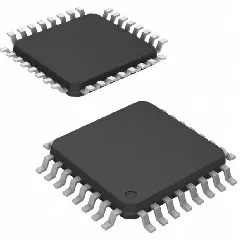Supply original ADS5294IPFP, Data Acquisition - Analog to Digital Converters (ADC), by texas

Pictures are for reference only. Please contact us for the latest pictures.
Availability
Price Range
| Quality | Unit Price |
|---|---|
| 1 | |
| 10 | |
| 30 | |
| 100 | |
| 500 | |
| 1,000 |
Due to different local policies, please contact us for the latest quotation.
We are ISO 9001, AS 9120B, IOS 14001 certified, ensuring that our quality management system meets international standards. This certification guarantees that every electronic component we supply is authentic, reliable, and traceable. Our dedicated inspection team conducts rigorous quality checks to prevent counterfeit products and reduce failure rates. By adhering to these stringent quality controls, we provide our customers with peace of mind and products they can trust.
Overview
The ADS5294IPFP is a high-performance, low-power, 16-bit analog-to-digital converter (ADC) designed by Texas Instruments. It is particularly well-suited for applications in medical imaging, industrial automation, and high-speed data acquisition systems.
Key Features:
-
Resolution and Speed: The ADS5294 offers a 16-bit resolution, which allows for precise signal representation. It operates at a maximum sampling rate of 65 MSPS (mega samples per second), making it capable of handling high-frequency signals with accuracy.
-
Input Configuration: This ADC supports a differential input configuration, which helps in rejecting common-mode noise and improving signal integrity. The input range is designed to accommodate a variety of signal types, making it versatile for different applications.
-
Power Consumption: The device is optimized for low power consumption, making it suitable for battery-operated devices and applications where energy efficiency is critical. It typically consumes around 300 mW in full operation, which is competitive for its class.
-
Digital Interface: The ADS5294 features a flexible digital output interface, supporting both LVDS (Low Voltage Differential Signaling) and CMOS (Complementary Metal-Oxide-Semiconductor) formats. This allows for easy integration with various digital processing systems.
-
Built-in Features: The ADC includes several built-in features such as programmable gain amplifiers (PGAs), which can adjust the gain of the input signal, and digital filtering options that help in reducing noise and improving the quality of the output signal.
-
Package and Pin Configuration: The ADS5294 is housed in a compact, thermally efficient 64-pin HTQFP (Thin Quad Flat Package) package. This design not only saves space on the PCB but also aids in heat dissipation, which is crucial for maintaining performance in high-speed applications.
-
Temperature Range: The device is rated for operation over an industrial temperature range, typically from -40°C to +85°C, ensuring reliability in harsh environments.
-
Applications: The ADS5294 is ideal for a variety of applications, including ultrasound imaging, high-speed data acquisition systems, and other applications requiring high-resolution and high-speed data conversion.
Summary:
In summary, the ADS5294IPFP from Texas Instruments is a robust and versatile 16-bit ADC that combines high speed, low power consumption, and advanced features, making it an excellent choice for demanding applications in medical and industrial fields. Its differential input, flexible digital interface, and compact packaging further enhance its appeal for modern electronic designs.
Product Attribute
Export Classifications & Environmental
Product Parameter
Articles
This guide provides a direct comparison of HBM generations (up to HBM3e), analyzes the market landscape dominated by SK Hynix, Samsung, and Micron, and offers a crucial procurement checklist. It concludes with a practical case study, advising on capacity and bandwidth requirements (e.g., for a 175B parameter LLM), ensuring businesses can make informed decisions for their high-performance AI systems.
The Nexperia geopolitical crisis, involving legal takeover and counter-sanctions, poses the most severe recent risk to the global semiconductor supply chain, demanding immediate analysis of supply bottlenecks and price impacts for all component buyers.
With its unique properties of radiation hardening, unlimited read/write endurance, and low power consumption, MRAM is becoming the preferred choice for next-generation aerospace memory. This article will provide an in-depth analysis of MRAM's key advantages and applications in the aerospace field.
Comprehensive overview of MR25H40CDF SPI MRAM: specs, applications, case studies, and our real-stock advantages.
